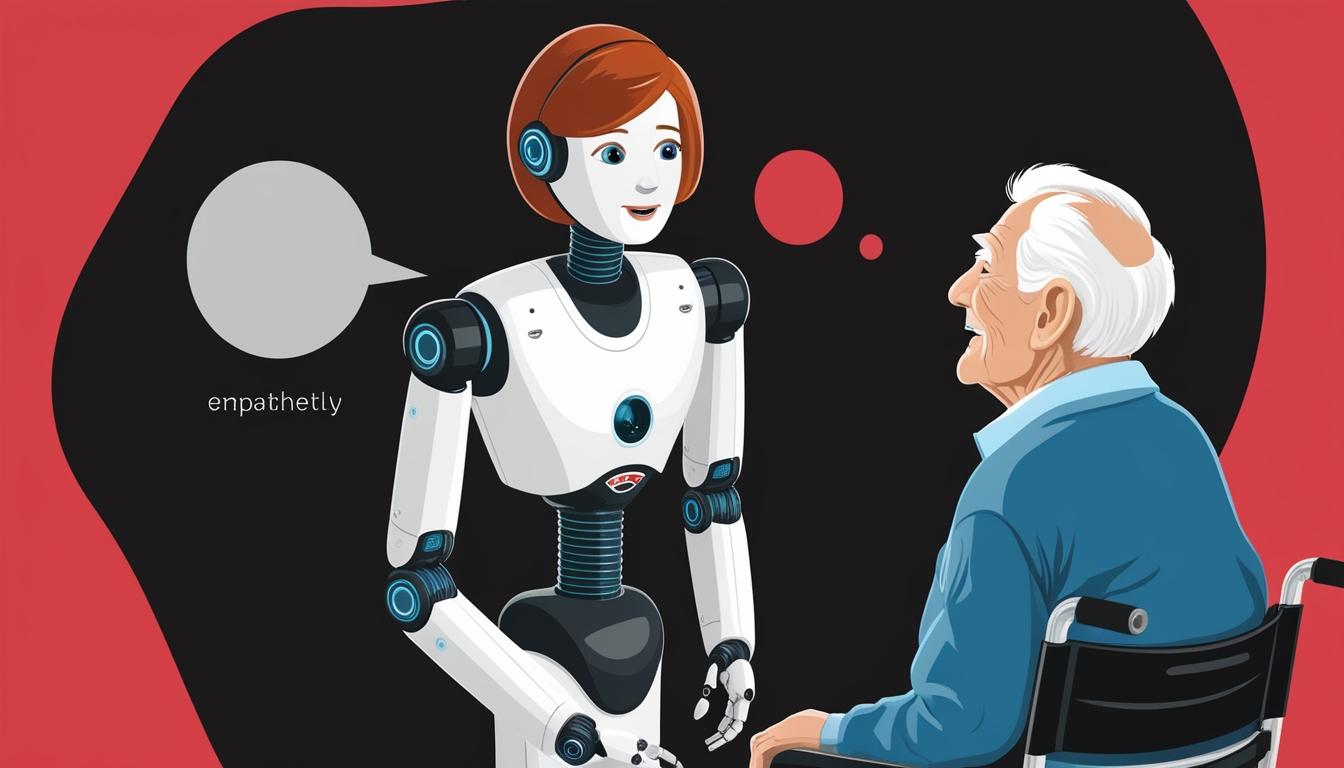The development of AI technology is rapidly transforming the landscape of elder care, as evidenced by the creation of Nadine, a humanoid robot designed to alleviate loneliness among elderly residents in care homes. Nadine is the brainchild of Professor Nadia Thalmann, a Swiss robotician whose experiences with her elderly mother influenced her to explore robotic companionship as a viable solution to social isolation faced by those in care environments.
Having moved to Singapore for work, Nadia found herself unable to visit her mother, who was residing in a care home in Switzerland, as often as she would like. Acknowledging the scarcity of quality interaction available to residents—often due to the international backgrounds of the staff—Nadia remarked, “In care homes no one has time to spend with each individual, just to chat, read a book or play bingo.” This observation motivated her to create Nadine, an AI-powered robot capable of engaging with the elderly in a more personal and meaningful way.
Nadine, designed to resemble Nadia with her auburn hair, has been trialled in Singapore care homes, demonstrating a positive impact on resident interaction. Nadia explained to the Mirror that Nadine has been programmed with advanced memory processes, enabling her to recognise and remember details about the residents, which facilitates ongoing conversations. “She is very empathetic, so people immediately like her,” Nadia noted, highlighting Nadine’s role in providing companionship and stimulation.
Beyond simple conversation, Nadine’s capabilities include leading residents in daily exercises, organising singalongs, and playing traditional games such as bingo. She is also equipped to share music and videos that resonate with the residents, as well as facilitating communication with their family members via phone and video calls.
The use of AI in care homes is not limited to Nadine. Other robotics initiatives have emerged, such as Pepper, a wheeled robot already operational in some UK care homes. Pepper interacts with residents by initiating conversations, playing their preferred music, and reminding them of medication times. Research conducted in collaboration with the University of Bedfordshire demonstrated a marked improvement in the mental health of elderly individuals who interacted with Pepper over a short trial period.
Furthermore, the Irish-developed Stevie II, equipped with advanced sensing technologies, has also shown promise, particularly in monitoring the health of residents and responding to emergencies, reinforcing the growing role of technology in elder care.
Looking towards the future, experts like Nadia highlight the anticipated increase in the elderly population, particularly in the UK, where by 2040, approximately 24% of the population is expected to be over the age of 65. As these trends continue, the need for innovative solutions to care for this demographic will become increasingly pressing.
Nadia believes that we are on the precipice of a significant change in care practices, predicting that robots like Nadine will evolve beyond companionship to assume active care responsibilities. “Nadine is a sitting robot at the moment,” she explained, “but once she can walk, she’ll be able to help with cleaning, assist someone to the bathroom, or lift them out of bed.”
This progression signifies a shift towards a future wherein empathetic machines play a dual role as carers and companions, potentially reshaping elder care in both institutional settings and at home.
Source: Noah Wire Services
